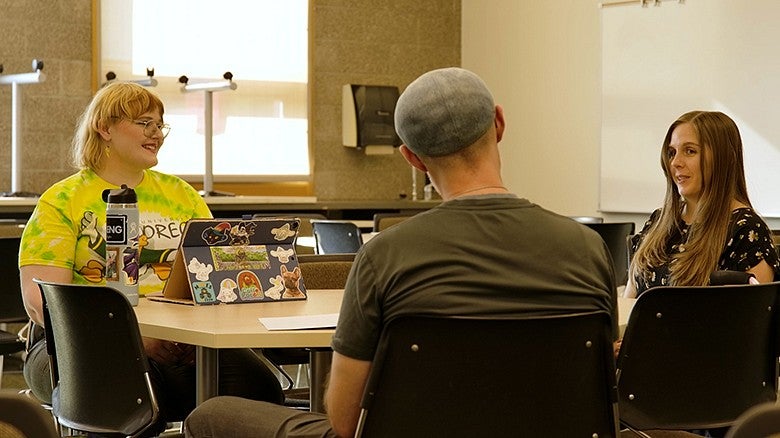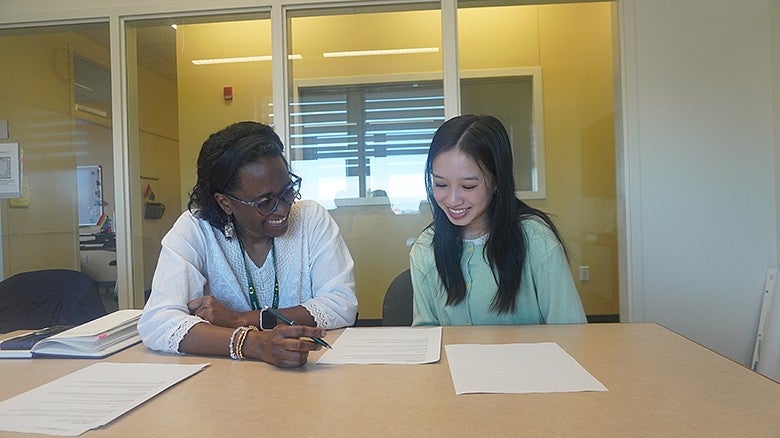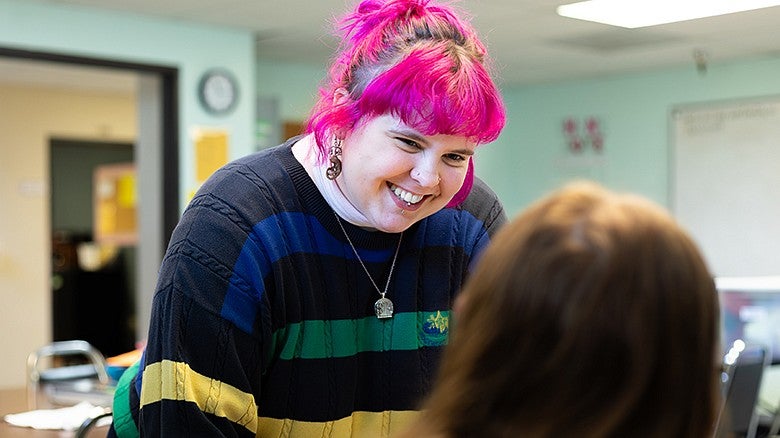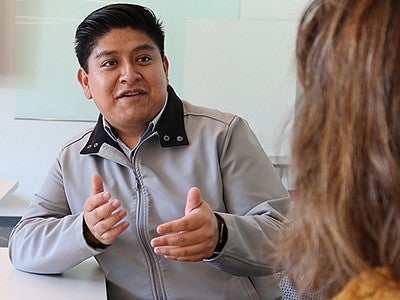Career Opportunities | Hands-On Experience | Alumni Success Stories | Inclusion and Social Change | Apply Now
About the Family and Human Services Program
Are you interested in helping families grow stronger and healthier, building more just communities, and learning how to be an advocate and activist for more effective and equitable community social services?
FHS is interdisciplinary and reflects the diversity of the community and social service sector, drawing on the fields of psychology/counseling, social work, prevention science, public health, human development, and sociology. FHS students support the health and well-being of communities, families, and individuals through the development of prevention programs and direct advocacy and delivery of services.
The family and human services major leads to a bachelor of arts (BA) or a bachelor of science (BS) degree.
- The bachelor of arts (BA) degree requires proficiency in a second language.
- The bachelor of science (BS) degree requires proficiency in mathematics or computer and information science or a combination of the two.
Students who major in FHS must select one track in which to complete additional coursework beyond a shared set of core courses.
- The Fundamentals track is geared toward students interested in going directly to the workforce without field service (e.g., students who already have worked in the field).
- The Prevention Science (PS) track prepares students for graduate studies and careers that involve prevention-focused program development and evaluation.
- The Direct Service Intensive (DSI) track prepares students for graduate studies and careers that involve direct delivery of interventions.
What can I do with a Family and Human Services degree?
FHS graduates are prepared to enter the community and social service workforce, which, according to the Bureau of Labor Statistics, is “projected to grow 10 percent from 2021 to 2031, faster than the average for all occupations.” Projected increases include counselor and social worker occupations.
A degree in FHS is highly versatile. Many students enter the community and social service workforce immediately following graduation in occupations including:
- case manager
- youth outreach worker
- family support worker
- correctional/probation officer
- residential care provider
- juvenile court liaison
- human services liaison
- behavioral management aide
- community outreach worker
- eligibility worker
- rehabilitation case worker
- public policy maker
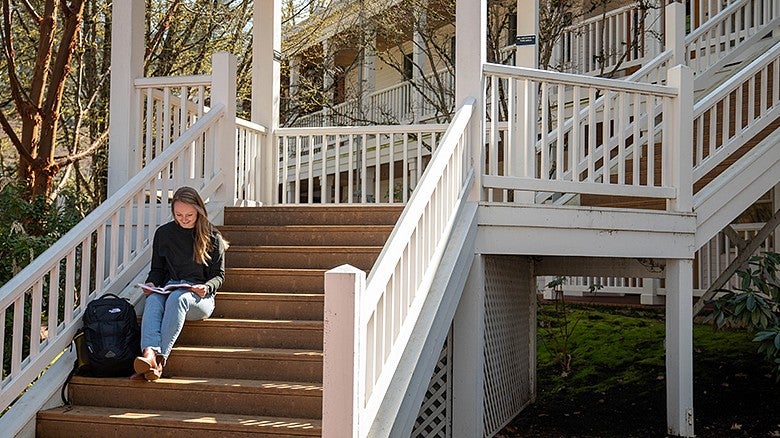
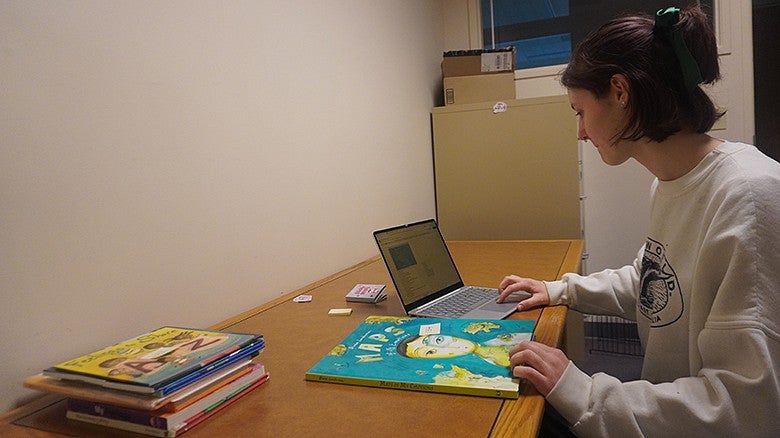

Some careers within the community and social service sector require at least a master’s degree, and many FHS students pursue research and graduate studies in disciplines such as:
- counseling psychology
- couples and family therapy
- prevention science
- education
- special education
- early intervention/early childhood special education
- agency management and leadership
- social work
Hands-On Experience
Students in the Direct Service Intensive and Prevention Science pathways complete their training through real-world experiences. Students can work with faculty doing applied research, and we have more than 100 community partners who are excited to host students and provide internships in non-profit administration, child development services, case management, research, addiction services, counseling, and more.
Learn more about the Family and Human Services (FHS) program
Check out this episode of the College of Education's Look No Feather podcast!
In this episode we learn more about the Family and Human Services (FHS) major! We had a chance to connect with Dr. Jen Doty, FHS Program Director, to discuss the program, the pathways within the major and the opportunities that students are provided. Additionally, we touch briefly on the careers that students tend to gravitate to with each FHS major pathway.
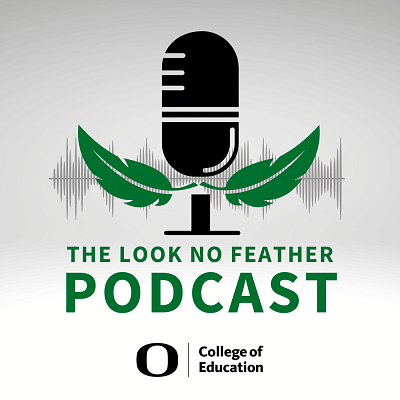
Take the Next Step
Call us, email us, visit us or apply to the program. We’re here to answer your questions about how the Family and Human Services program can grow your future. To schedule an advising appointment, Use Navigate, available on the App Store and Google Play or schedule an appointment with Student Academic Services.
Alumni Success Stories
Enrich Your Academic Experience
Our inclusive class models create tightly-knit communities of students who influence each other’s success, and most students are involved in research as part of their program requirements. Our culture values diversity and promotes respect and inclusion. Our graduates become leaders in education and human sciences who change lives and improve outcomes for individuals and systems.
Commitment to Inclusion and Social Change
The Department of Counseling Psychology and Human Services strives to maintain an inclusive learning environment that values and celebrates diverse perspectives so that all students can flourish professionally and personally. Our view of diversity encompasses, but is not limited to, ability, age, culture, gender, language, nationality/geography, political views, race/ethnicity, religious beliefs and practices, sexual orientation, and socioeconomic status/class. Advancing social justice is central to our educational mission. Our community strives to advance social justice through our research, pedagogy, service, and clinical outreach, which collectively aim to improve the lives of individuals, families, and communities. Our work toward these goals is an ongoing journey of learning, and we welcome input from our students, colleagues, alumni, and friends to support these efforts.


